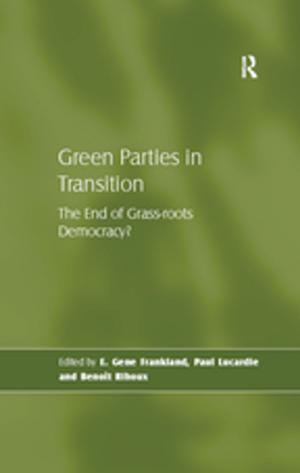Exploring the Social Impacts of Events
Business & Finance, Industries & Professions, Hospitality, Tourism & Travel, Industries, Nonfiction, Travel| Author: | ISBN: | 9781136264498 | |
| Publisher: | Taylor and Francis | Publication: | March 12, 2013 |
| Imprint: | Routledge | Language: | English |
| Author: | |
| ISBN: | 9781136264498 |
| Publisher: | Taylor and Francis |
| Publication: | March 12, 2013 |
| Imprint: | Routledge |
| Language: | English |
Social impacts are increasingly used as one of the main justifications for staging and funding events, and yet there is very little empirical evidence on the extent to which these impacts are realised by different kinds of events or in different settings.
This timely volume fills this gap by being the first to explore the different social aspects of events, looking in particular at the role of events in developing social capital, social cohesion and participation in local communities. Based on cutting edge empirical research, it evaluatesthe contribution of both cultural and sports events to social capital, social cohesion, community spirit and local pride in range of different types of events and settings, with case studies drawn from Europe, Australia and South Africa. It therefore furthers knowledge about the social benefits and impacts of events and significantly contributes to the development of Events as a discipline.
Written by leading academics in this area, this volume is essential reading for all those interested in Events Management and Studies.
Social impacts are increasingly used as one of the main justifications for staging and funding events, and yet there is very little empirical evidence on the extent to which these impacts are realised by different kinds of events or in different settings.
This timely volume fills this gap by being the first to explore the different social aspects of events, looking in particular at the role of events in developing social capital, social cohesion and participation in local communities. Based on cutting edge empirical research, it evaluatesthe contribution of both cultural and sports events to social capital, social cohesion, community spirit and local pride in range of different types of events and settings, with case studies drawn from Europe, Australia and South Africa. It therefore furthers knowledge about the social benefits and impacts of events and significantly contributes to the development of Events as a discipline.
Written by leading academics in this area, this volume is essential reading for all those interested in Events Management and Studies.















